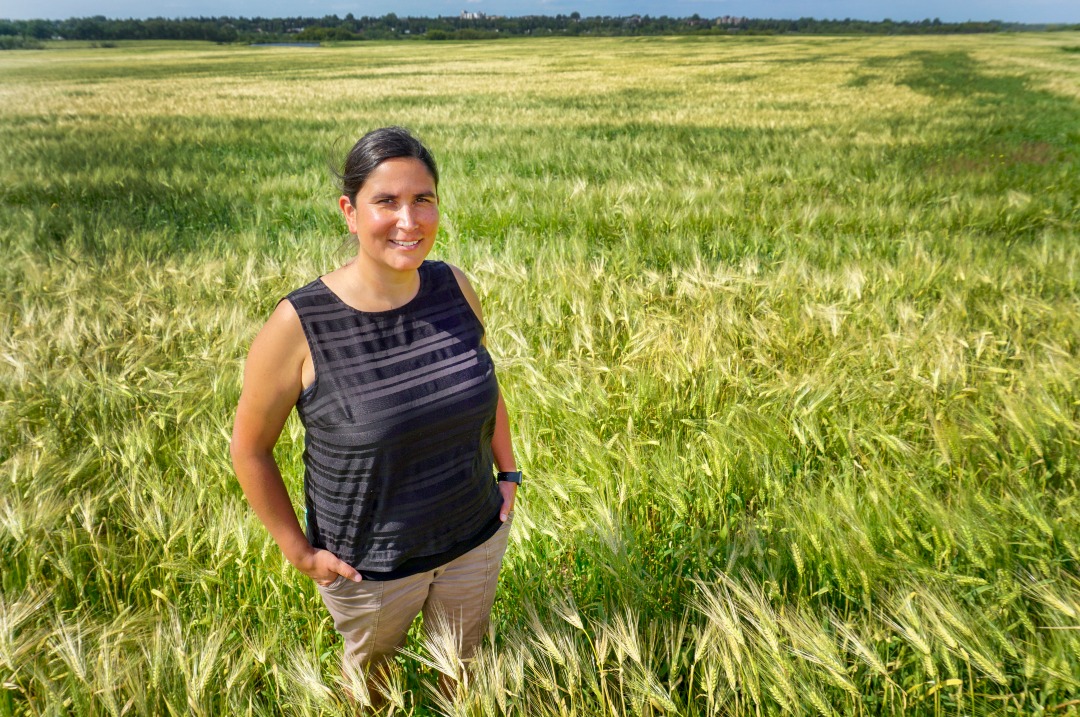
USask project to improve soil health through knowledge sharing network receives $1.4 million from Weston Family Foundation
A new project at the University of Saskatchewan (USask) has been awarded $1.4 million through the Weston Family Soil Health Initiative to develop land-based training workshops for First Nations communities, land managers, and producers who farm First Nations lands.
The $10 million Weston Family Soil Health Initiative seeks to expand the adoption of ecologically based beneficial management practices (BMPs) including cover cropping, nutrient management (4R principles) and crop diversification/rotation that increase soil organic matter to improve biodiversity and resiliency on agricultural lands across Canada.
The project, Indigenous Soil Health Learning Circles for Resilient Prairie Agroecosystems, aims to establish a network to share evidence-based, culturally significant outreach and education to improve prairie soil health, biodiversity, and soil organic matter for First Nations agroecosystems.
USask soil scientist Dr. Melissa Arcand (PhD) will be working in partnership with Mistawasis Nêhiyawak, Saskatchewan Aboriginal Lands Technicians, and the International Buffalo Relations Institute.
The Soil Health Learning Circles will share soil health knowledge from both an Indigenous and Western science-based perspective with First Nations and farmers who farm First Nations lands across the Prairies, focusing on the prairie-parkland region of Saskatchewan, Alberta, and Manitoba.
“Our project will expand soil science training beyond the walls of the university—alongside teachings of Indigenous ecological knowledge—onto lands that are of significance to the First Nations we are in partnership with,” said Arcand, an associate professor in the College of Agriculture and Bioresources.
Conventional agricultural production is the main economic land use on First Nations in the Canadian Prairies, most of which is farmed by non-Indigenous producers. Many First Nations are now actively engaging in agricultural land management for improved economic outcomes and to establish stronger connections to Indigenous values around ecological stewardship and biodiversity.
The Soil Health Learning Circles will also share outcomes from the Agricultural Climate Solutions Living Lab Project “Bridge to Land Water Sky” led by Mistawasis Nêhiyawak in partnership with Muskeg Lake Cree Nation and other organizations. The Indigenous-led living lab, funded by Agriculture and Agri-Food Canada, aims to see farmers and First Nations working together to improve agricultural practices while honouring Indigenous values, communities, treaties, lands, and resources.
“I’m excited to exchange soil knowledge with First Nations land managers, producers, and community members on their own lands within their communities, and to continued building of respectful and reciprocal relationships for the benefit of the land and soil health,” said Arcand.
Click here to read the full news release from the Weston Family Foundation.

